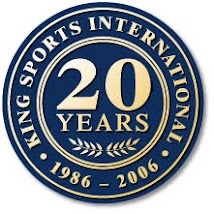Dear Ian,* 1. Tell us a little about your current role in strength and conditioning.
First of all, I want to thank you for your commitment to the NSCA as an organization through 10 or more years of service. Our Association is only as strong as its members, and you have raised the bar in terms of your commitment to the NSCA and to the profession - thank you!
We hope you can spare a few minutes of your time to complete a short profile of yourself by answering a few questions about your experience as a member and your growth as a professional.
Thanks in advance for a few minutes of your time to share your membership experience with us. We plan to feature several of these responses in an upcoming NSCA Bulletin as well as other channels.
I began coaching in 1980 and founded one of the world’s first athlete preparation / coach education companies in 1986, and continue in this capacity to this date.
* 2. How did you first hear about the NSCA?
I was first introduced to the NSCA in about 1981 by my college professor, who gave me a number of his personal NSCA journals, and I became a member shortly afterwards.
* 3. What are the most significant changes you’ve seen in your line of work since you became a member of the NSCA?
I believe the most significant changes I’ve seen in my line of work is the Internet, and not necessarily for the better. The Internet has provided the opportunity for individuals who lack integrity and experience to plagiarize and promote themselves beyond their competencies. When these same individuals are then giving positions of teaching and influence in professional development such as presented at the NSCA convention, it provides a sub-standard and inappropriate role model to the young members who are seeking direction early in their careers. This has not been a positive step forward in this profession. The losers are the athletes and others influenced by athlete training. We are seeing, in my professional opinion, an epidemic of training induced injuries, largely as a result of publications and teachings by individuals who lack the experience (in some case any experience training athletes) to be teachers.
* 4. What is the most meaningful highlight of your career since becoming an NSCA member?
Helping athletes fulfill their potential as athletes and in life, and guiding coaches to achieve similar results with athletes.
* 5. Why have you stayed with the NSCA these years?
I have stayed with the NSCA as a member for over 30 years because I am thankful for the opportunities to meet with and learn from experienced coaches during the formative years of my career, during the 1980s and 1990s. I have chosen to support and remain loyal for this reason, combined with an optimistic hope that one day the NSCA may return to an organization of values more similar to the early days, rather than what i see now in the NSCA. I have also remained a member despite the NSCA choosing not to take a stand against plagiarism and other blatant ethical breaches, not to fulfill its promise and potential as an organization that sets a high standard of ethics and enforces it. And I have chosen to remain loyal despite the NSCA's choice to endorse plagiarism and plagiarists by appointing certain speakers to their events knowing they have an extensive track record of unethical behavior. As such you are testing my desire to remain loyal.
* 6. Why did you choose NSCA over other associations?
When I joined the NSCA (early 1980s) there was no other organization. However over time i have noted the NSCA has moved away from its roots of training athletes through strength & conditioning coaches to a greater personal training focus.
7. How can the NSCA better serve you? (optional)
I only ask that the NSCA give consideration to its role in maintaining ethical behavior in an environment, which is in great need of it. I am sure that had Fleck & Kraemers books (or any other prominent NSCA member) been plagiarized to the extend that my books have, that the offenders would not have avoided sanction, and that the offenders would not have been speaking at the NSCA conventions, including the upcoming 2015 convention. This lack of consistency in maintaining industry standards has many pitfalls, i suggest, and is a failing of the NSCA to fulfill it's potential to provide an ethical environment for all members. I am encouraged and thankful, however, that for the first time in over 30 years, that my long service has been recognized and my opinion sought, although I am realistic, based on the responses (or lack of) that I have received from the NSCA during the last five years, as to whether my message will be heeded.




No comments:
Post a Comment